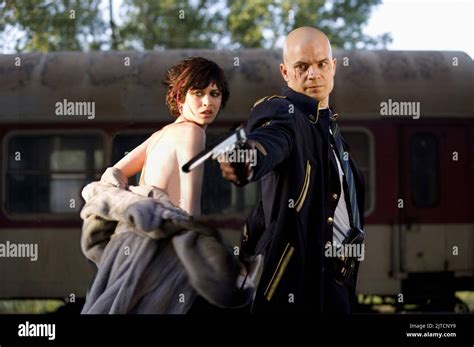Movies About Ed

The allure of cinema has a way of captivating our imagination, and when it comes to movies about education, the experience is both entertaining and enlightening. The educational landscape has been a rich backdrop for filmmakers to explore a myriad of themes, from the challenges faced by students and teachers to the transformative power of learning. Here, we’ll delve into a list of movies that not only highlight the importance of education but also offer compelling stories that resonate with audiences.
One of the most iconic films in this genre is “Dead Poets Society,” directed by Peter Weir and released in 1989. This movie tells the story of an unorthodox English teacher, John Keating, played by Robin Williams, who inspires his students to find their own voice and “seize the day.” Through its powerful narrative, “Dead Poets Society” explores the impact that educators can have on their students’ lives, challenging traditional teaching methods and emphasizing the importance of fostering individuality and creativity.
Another film that explores the educational system, albeit from a different perspective, is “The Class” (2008), directed by Laurent Cantet. This French drama is based on the novel of the same name by François Bégaudeau, who also stars in the film. It offers a gripping portrayal of a teacher’s efforts to connect with his students in a tough Parisian neighborhood, delving into the challenges of multiculturalism, social inequalities, and the complexities of the teacher-student relationship.
For a more humorous take on education, “School of Rock” (2003), directed by Richard Linklater, stands out. This comedy stars Jack Black as a wannabe rock star who turns a class of prep school students into a face-melting rock band. The film is not only entertaining but also touches on the theme of finding one’s passion and the importance of non-traditional learning methods in engaging students.
Historical dramas also have a significant place in films about education. “Stand and Deliver” (1988), directed by Ramón Menéndez, tells the true story of Jaime Escalante, a Bolivian-American teacher who worked at Garfield High School in East Los Angeles. Escalante’s innovative teaching methods and dedication inspired his students, many of whom were from disadvantaged backgrounds, to excel in calculus, challenging the stereotypes and expectations placed upon them. This film is a testament to the power of education in breaking social barriers and the impact one educator can have on their students’ futures.
In addition to these narratives, documentaries offer an insightful look into the educational system. “Waiting for Superman” (2010), directed by Davis Guggenheim, is a thought-provoking examination of the American public education system, highlighting its failures and the challenges faced by students, teachers, and administrators alike. The film sparks a critical conversation about the state of education, emphasizing the need for reform and innovation to ensure that every child has access to quality education.
The cinematic portrayal of education also extends to the experiences of students with disabilities. “My Left Foot” (1989), directed by Jim Sheridan, is a biographical drama based on the life of Christy Brown, an Irishman born with cerebral palsy, who learned to paint and write with his foot. The film, starring Daniel Day-Lewis, is a powerful exploration of resilience, the importance of inclusive education, and the recognition of the potential in every individual, regardless of their abilities.
These films, among many others, contribute to a broader conversation about education, its challenges, and its triumphs. They remind us that education is not just about academics; it’s about personal growth, societal change, and the relationships that shape us along the way. Whether through drama, comedy, or documentary, the stories told in these movies inspire, educate, and provoke thought, reflecting the complexities of the real-world educational landscape.
The Impact of Movies on Educational Discourse
Movies about education have a profound impact on public discourse, influencing how we perceive teaching, learning, and the educational system as a whole. They provide a platform for discussing critical issues, such as educational equity, teacher burnout, and the role of technology in learning. By sharing stories of struggle and success, these films humanize the educational experience, making it more relatable and accessible to a wider audience.
Moreover, these movies can serve as a catalyst for educational reform. By highlighting systemic problems and showcasing innovative solutions, they can inspire policymakers, educators, and the general public to rethink their approach to education. The narratives presented in these films offer a unique opportunity for reflection, encouraging viewers to question their assumptions about what education should look like and how it can be improved.
The Future of Education as Depicted in Cinema
The cinematic lens also turns towards the future, speculating on how education might evolve. Films like “Ex Machina” (2014) and “AI Artificial Intelligence” (2001) explore the intersection of technology and learning, raising important questions about the potential benefits and drawbacks of integrating artificial intelligence into educational settings. These sci-fi narratives invite us to consider the ethical implications of relying on technology for learning and the potential consequences for human relationships within the educational sphere.
In conclusion, movies about education offer a compelling blend of entertainment and insight, providing a unique window into the complexities of the educational world. Through their stories, they inspire, educate, and challenge viewers to think critically about the role of education in society. As we continue to navigate the challenges and opportunities of the 21st century, the lessons learned from these films will remain invaluable, guiding us towards a future where education is equitable, accessible, and empowering for all.
It's worth noting that while films can provide powerful portrayals of educational experiences, they are just one part of a much larger conversation. Real-world educational reform requires a multifaceted approach, considering the perspectives of educators, policymakers, and the community at large. By combining the inspirational aspects of cinema with the practical insights of educational research, we can work towards creating a more inclusive and effective educational system for the future.
FAQs
What are some of the most influential movies about education?
+Some of the most influential movies about education include "Dead Poets Society," "The Class," "School of Rock," "Stand and Deliver," and "My Left Foot." These films have contributed significantly to the public discourse on education, highlighting its challenges and triumphs.
How do movies about education impact public discourse?
+Movies about education have a profound impact on public discourse by providing a platform for discussing critical issues in education, inspiring reflection, and potentially influencing educational reform. They make the educational experience more relatable and accessible to a wider audience.
What role can technology play in the future of education as depicted in cinema?
+Cinema often explores the potential benefits and drawbacks of integrating technology, such as artificial intelligence, into educational settings. These narratives encourage viewers to consider the ethical implications and potential consequences for human relationships within education, inviting a critical discussion about the future of learning.
As we explore the diverse narratives presented in films about education, we are reminded of the complexity and richness of the educational experience. These stories, whether fictional or based on real events, offer valuable insights into the human side of learning, teaching, and growing. By examining the multifaceted world of education through the lens of cinema, we can foster a deeper understanding of its challenges, opportunities, and the profound impact it has on individuals and society as a whole.



